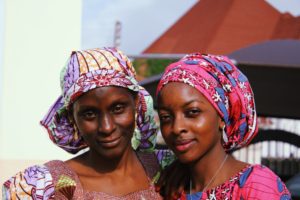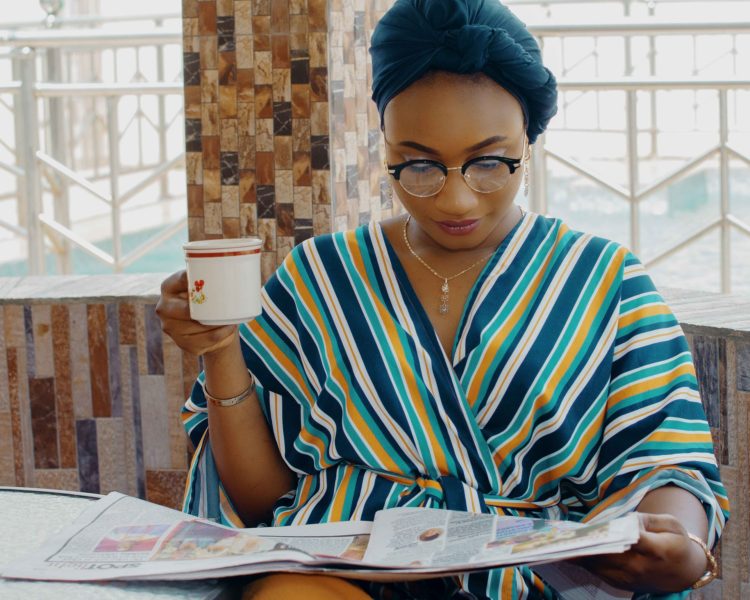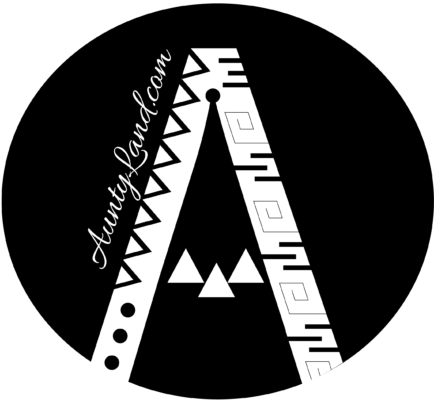
These reflections refer to my Igbo Nigerian culture and the strength of its matrilineal societies. I invite you to explore: Chinua Achebe’s Things Fall Apart (charting the effects of British/Western colonialism in southeastern Nigeria); and Wole Soyinka’s Aké: The Years of Childhood (outlining Soyinka’s childhood in Nigeria pre-and post-WWII. For a Yoruba, perspective starts with Florence Nwapa’s This is Lagos and Other Stories, an anthology describing universal problems shared by Nigerians and women around the world. The specific Biafran War within Nigeria (integral to Igbo history) read Chinua Achebe’s There Was a Country; and Alfred Obiora Uzokwe’s Surviving in Biafra: The Story of the Nigerian Civil War: Over Two Million Died. For understanding matrilineal societies, read Chimamanda Ngozi Adichie’s Half of a Yellow Sun, and Ifi Amadiume’s Male Daughters, Female Husbands: Gender and Sex in an African Society.
My Igbo Matrilineal Culture
“Beloved, the past is our strength.” This phrase is my motto. It is my mantra, a literary representation of my approach to life. My name is Amy Azubuike. My first name, Amy, a diminutive of “Amelia” and originating from the name “Aimée” in Old French, often translates to ‘beloved’ in its meaning. And, my last name, “Azubuike” roughly translates to “the past is our strength” in Igbo, one of the prominent languages in the southeastern region of Nigeria. My lineage has breathed life into me, and my purpose and connection to living were pre-determined at my birth. I am loved, I am beloved, and the past is my strength. However, how does my past strengthen me? Where is that strength shown?
Source of Strength
As I continue to shift paths in my life, I’ve found that the aunts in my life have served as one fundamental source of strength for me. The first major death of my formative life was that of my aunty–my godmother, my second mother, my confidant. She passed away from sickness not long after my 16th birthday in the winter of my junior year, when my most serious concerns were SAT testing, college applications, and maintaining my GPA. I had thought to visit her the weekend before she passed. But since my SAT was that weekend, I postponed it. That lack of proper closure had haunted me for months afterward.
Painful losses
The following year, I lost multiple loved ones, and the same came true for the year after that. I’ve found myself debating the intrinsic nature of the process of coping as, in 2020, I’ve found myself plopped into another one of those years with many deaths and little relief. As more loved ones transcend into the afterlife, I’ve found that her life almost models a coda within the movement that is my own life. Her imprint and her life lessons are forever illuminating to me.
My Aunty Onyinye
In my life, Aunty Onyinye was my dance partner. I felt out of step with life. Not only did I not tune into the latest dance crazes that enraptured children like me at that age (Azonto, the Cat Daddy, and Shoki come to mind). But I similarly felt disconnected from life in general. I didn’t find comfort in a lot of the same sources of joy that my classmates did. With the exception of some television shows, I couldn’t focus on current events. Try as my mother did, coming-of-age phases to teenage girlhood such as makeup, care for fashion, and certain (traditionally) womanly rules of etiquette, all flew past me. Yet, somehow, my aunt found ways to introduce these ideas to me by meeting me at my level. She didn’t brute force her suggestions into my psyche. Nor did she shy away when I didn’t accept them immediately.
Teaching me my culture

When she asked if I’d heard of the Azonto and found my blank stare, she tried to encourage me by looking up Youtube videos and miming some of the dance movements but lived and let alone if I wasn’t receptive, instead of bringing up my interests for the next time.
This is the Azonto video my Aunty Onyinye showed me, nearly 8 years ago. Of course, I was amazed by her level of knowledge concerning popular youth dances, considering she was a member of my mother’s generation — the children born into post-Independence Nigeria, enduring the aftereffects of colonization which were constructed from suppression tactics–embedded within white supremacy–and were so pervasive on the Motherland. In spite of the weight of that history, she found the need, the energy, to dance, a lifeline so embedded within so many Black cultures.
Afrobeat music, dance
She loved dancing to traditional “Afrobeat” music, a term coined and genre pioneered by Fela Kuti, the famous Nigerian multi-instrumentalist composer, political activist, and general counter-cultural Pan-Africanist icon.
According to my mother, this was one of my Aunty Onyinye’s favorite Flavour songs! Aunty Oninye tapped her feet to Davido, sang along to Flavour, and gyrated her hips to the peaks and echoes of both King (Dr.) Chief Oliver D’Coque’s highlife guitar and Chief Steven Osita Osadebe. While slowly aiding my mother in easing me into my adolescence, she showed me the social power of dancing in bringing together people across ages, cultures, and mindsets. To this day, I owe my love of rhythm to my mother and to my aunt.
Balancing grief
After her passing, I found myself grasping for that same level of balance that she provided for me in life. I found that the difficulties of that time period–most of which, I rather not divulge in this piece, but do want to emphasize reframed my understanding of upheaval and struggle up till that point–seemed to pile on, without one of the few people who knew exactly the mindset to take to approach them all. Again, I was not only out of step with life, but life had propelled me away from my element. However, within that process of coming back to myself these last few years, I’ve found that processing her passing has opened me up to a lot of reflections on and making peace with a lot of the harrowing experiences of that time. She inspires so many of these reflections–partially due to the fact that for every death, I’ve experienced in the last few years, she’s the only loved one whose funeral I was ‘fortunate enough to attend and subsequently weave into my journey of closure. I’ve always believed that there is great significance in that fact, considering she is my godmother: truly, my second mother, and she treated me like a child of her own.
My North Star
My aunts, altogether, combine into my North Star. They anchor the constellations of memories and experiences that I search for, from those who’ve passed on, in tough times. That I search for, to find a way to celebrate the good moments alone with them somehow. Others may relegate Aunty Onyinye solely to my past, but she is so much more a horizon, acting as a reminder of my present and a motivator for my future. She is such a living essence within my life, but the past specifically binds us. Though still, she is such a core element of that past. She represents so much of my strength. Just because an individual is no longer living, doesn’t mean they’re no longer present or are irrevocably cast to the past. And, just because a spirit or soul is no longer material, doesn’t mean it’s not ‘living’. Ancestral connections and presences showcase the importance of the diffusion that exists between past and present, present and future, past and future, and so forth. My aunt has played such a vital role in not only revealing these temporal relationships to me on their own but also by strengthening them within me in so many specific, life-altering ways. This relationship with my Aunty Onyinye is unique to me, and processing her passing even more so, but it just so represents the impact of aunts in Black lives and within my specific ancestral culture, where the entity of the ‘aunt’ serves as a manifestation of the roles in tradition and in ancestral cultural history that Black women hold. While my Aunty Onyinye symbolically represents so much of my ancestral connection to my culture and my ties to tradition, there are many other concrete ways that aunts express these roles. Tapping into the wisdom of my mother, she shared with me that “aunts are the wheels that turn the family.” Their opinions and overall say matters significantly in terms of keeping the family stable.
Regarding wives
Within Igbo culture in Nigeria, in my mom’s specific tribe, aunts settle crucial decisions in the family; for example, the aunt offers her opinion regarding wives since, as my mother says, “you want your family tree to be without blemish.” Within my mother’s family, and therefore my family by extension, aunts ensure that the women married into the family are hard-working, morally upright, and come from good, ‘respectable’ families. That last criterion is vital; great emphasis is placed on making sure that the wife-to-be’s family has not been cursed by the gods, or that no abomination exists within their lineage. Within just this area of marriage charting, aunts assume their roles in governing the past and the future, particularly in one’s familial past and engineering the hope for a positive familial future. Culturally, aunts hold great respect within their positioning. Their word is bond.
Family gatekeepers
As the gatekeepers of the family, they advise the men of the family in a lot of family matters, and the men usually listen to those suggestions. If there’s an issue you need help with, they are your problem solvers–I’ve found my Aunty Onyinye to fully embody this role within Igbo culture multiple times. Most importantly, they preserve the veneer of the family, making sure that no member brings shame to the family unit. They especially play a key role in shepherding young girls in the family, guaranteeing they’ve not led astray and prepared them for marriage. Within these roles, aunts provide a unique dosage of objectivity and familiarity to their youth, of somehow balancing proper distance and separation alongside their involvement, all in manners that biological mothers and fathers cannot replicate as easily. And even then, aunts present as de facto mothers for so many of us, too.
Non-biological, chosen mothers, aunts
In some cases, children are named after certain women, or the title of ‘mom’ is associated with a woman besides their non-biological mother. Because of a particular woman’s character or standing, one might assign their child her namesake in order to encourage that woman to take responsibility for that child, tending to their welfare as the child develops. Aunts hold various roles in the family unit, molding themselves into whatever need is present at the moment; it is a very malleable, and therefore difficult, role to fill and often decides the tone of the family. The role of the aunt fully exhibits the principle of ‘It Takes a Village’ that is prevalent in so many non-Western cultures, are markers of multiple Black cultures, and is particularly a key within different African cultures including different Nigerian subcultures as well. The gravitas of the role of the aunt within a culture can be inferred from Igbo culture in general customs, as well.
Calling everyone ‘Aunt’ or ‘Uncle’
One custom that always warms my welcome, whenever I visit Nigeria, is the social norm of calling everyone that appears older than you ‘Aunt’ or ‘Uncle’. It doesn’t matter that they may be strangers; in fact, strangers are often called ‘Aunt’ in greeting, even if you’ve never met before, or you’re just passing by each other on the road!
